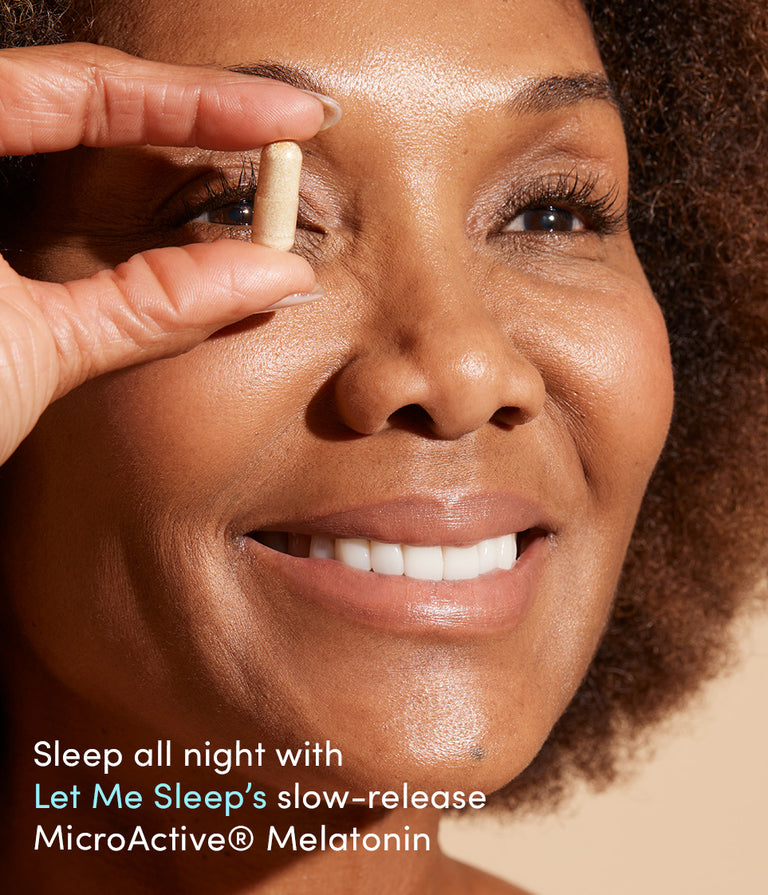By Julia Walker, RN, BSN 7-Minute Read

Julia Walker, RN, BSN is a women’s health nurse, writer, and member of the perry team. Perry connects and supports perimenopause warriors in a safe space—to build friendships, learn, and laugh. The moment you think, "WTF, could this be menopause?"—join our sisterhood!
Feeling a little less than sharp lately? Fighting to find the right word as your colleagues on Zoom cast hopeful looks? You're not alone. A seemingly sudden cognitive dip can take many forms in perimenopause and menopause, but it is known by one spot-on name: brain fog.
It's become a bit of a buzzword recently and we're actually pretty happy about it. Why? Because we finally have a way of describing some of the bizarre mental and cognitive changes that can occur with normal hormonal shifts in menopause. And brain fog is not only limited to menopause. In fact, it can show up at any point in our lives under certain circumstances. Let’s dive into what brain fog is, why it happens in menopause, and how to manage it.
So What Is Brain Fog?
Brain fog is a condition where you notice mental and cognitive changes that make it harder to operate in your day-to-day life. Sometimes called "clouding of consciousness," it is one of the 30-plus symptoms of perimenopause and menopause and is often one of the biggest complaints about this transitional time of life. With brain fog, you can feel like your head is just not “quite right.” It often feels as though your thoughts are muddled, like you are viewing your life through a foggy lens, or your brain is not as sharp as it was a few years ago. Symptoms of brain fog include:
● Difficulty concentrating
● Trouble recalling things
● Concerns about memory
● Struggling to focus
● Lacking mental clarity
● Feeling hungover
Despite how common it is, brain fog is not considered a medical condition at this point. However, experts largely agree that the brain can manifest certain concerning symptoms that are fortunately not permanent in certain conditions. For example, people often experience brain fog during the following scenarios:
● Stress: Chronic stress has numerous adverse effects—from blood pressure issues to a weakened immune system and depression. Stress can also lead to memory issues, weak concentration, and poor cognitive functioning.
● Medications: Some medications can cause symptoms of brain fog. Check with your provider if you are suspicious that a medication may be causing your symptoms.
● Diet: Certain nutrient deficiencies can lead to brain fog, including a lack of vitamin B-12. Furthermore, eating foods that you are allergic to or sensitive to may impact your mental clarity.
● Poor Sleep: Lack of sleep can cause brain fog in anyone. However, women in perimenopause are more subject to poor sleep due to night sweats and difficulty sleeping during this transition.
● Chronic Illness: Women suffering from chronic illness, such as thyroid conditions, anemia, and autoimmune diseases, often report living with brain fog. In these instances, brain fog may be due to the diseases themselves and side effects from treatment.
"Brain fog is a condition where you notice mental and cognitive changes that make it harder to operate in your day-to-day life."
Why Is Brain Fog Happening in Menopause?
We don’t fully know why brain fog occurs in many women during the menopause transition. Yet, we know that changing hormone levels are obviously one of the biggest culprits behind these cognitive changes. Estrogen receptors are found throughout the body, including the brain. In the central nervous system, estrogen:
● Increases cerebral blood flow
● Has anti-inflammatory effects
● Enhances activity between the neuronal synapses
● Combats oxidative stress and ischemic damage
● Boosts levels of serotonin, dopamine, and norepinephrine
Because estrogen and progesterone fluctuate during perimenopause, it is normal for women to experience temporary cognitive changes, such as cloudy thoughts and difficulty remembering things like grabbing the grocery list off the counter. Mood changes are also normal and expected because of the intricate relationship between your sex hormones and your neurohormones (like dopamine).
Aside from the biochemical changes in your brain, let’s not forget that perimenopause comes at a time when life stressors can pick up. Because most women hit perimenopause in their 40s and 50s, women in this life stage are often at higher levels in their careers, have kids in challenging phases (like the teenage years), and often have aging parents. Not to mention, the anxiety that can accompany perimenopause can further increase your odds of having brain fog.
"Because estrogen and progesterone fluctuate during perimenopause, it is normal for women to experience temporary cognitive changes..."
Do I Have Brain Fog?
There is no diagnostic test to confirm if you have brain fog. And, because it's not technically a medical condition, many doctors don't screen for it. That’s why it helps to be proactive in recognizing any changes in yourself. If you notice brain fog symptoms, like difficulty remembering things or concentrating, bring it up to your doctor. Also, be open with those closest to you about it. Friends and family may also notice some changes in you, and they may be able to help pick up the slack in the high-stress areas of your life.
8 Ways to Clear the (Brain) Fog
Like most menopause symptoms, there’s no roadmap and no two experiences are identical. But keeping your mind, body, and soul in shape can keep recurring fog at bay, where it belongs.
1. Stay Social: As much as you'd like to retreat when you can't formulate words, think clearly, or remember names, staying social is vital. Seeing friends and family often helps you remain sharp, even when your head feels particularly dull.
2. Be Active: Exercising every day, whether you walk around the block, hike, or weight train, is a surefire way to lift the fog in your head. Exercise not only releases feel-good neurotransmitters but also brings more oxygen to your brain.
3. Work Out Your Brain: Speaking of exercise, don’t forget to work out your brain by giving yourself foreign tasks. For example, try to learn a few new phrases in a foreign language each day, or do a crossword puzzle after dinner.
4. Get Creative: Research in neuroscience shows that getting creative releases neurotransmitters and creates neural pathways that improve cognition and boost your mood. Creativity can extend beyond paintbrushes and clay, so if you aren’t feeling particularly crafty or artistic, there are numerous ways to get creative. Start by letting your mind wander and be bored. It is amazing what your brain will do as you sit and ponder life.
5. Limit Toxins: Alcohol, caffeine, and smoking can worsen brain fog. Try to limit alcohol and caffeine and stop smoking to help your head feel clearer.
6. Eat to Fuel Your Body: When we are feeling low, we run to foods that provide comfort...typically ones sans wholesome, clean ingredients. A poor diet can worsen brain fog, so work to incorporate healthier ingredients into your diet.
7. Consider Natural Supplements: Supplements like Me.No.Pause. by Womaness contain plant-based ingredients that help with brain fog like an extract of Bacopa monnieri—an essential Ayurveda adaptogen that supports cognitive health, memory, and focus—called Bacognize®. In fact, clinical studies proved that Bacognize® significantly increased attention and working memory, immediate recall and language comprehension, retention, alertness, emotional well-being, and more.*
8. Get Plenty of Sleep: When we get to a certain age, we often assume we need less sleep. But women in menopause need more sleep as their bodies adjust to this new season. Yet, as most women in menopause will share, getting a good night’s rest is tricky. Try to establish sleep habits that help reduce nighttime waking from hot flashes and anxiety. If you struggle with insomnia, consider sleep aids and talk to your doctor about other ways to improve your rest.
More Menopause 101
Top Menopause Myths: Dr. Ekta Kapoor
Surprising Symptoms, Real Solutions
Sleeplessness in Menopause: What to Know




